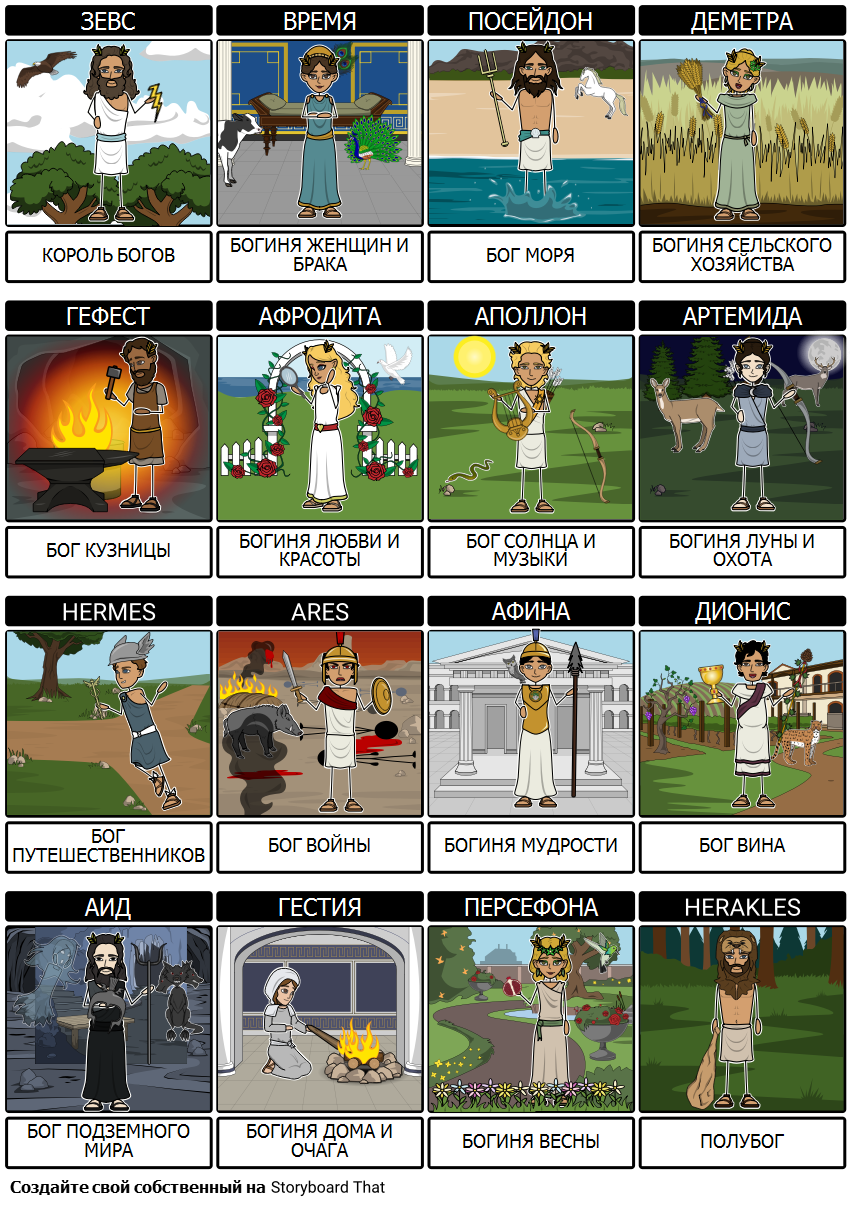
Symbols of the Greek Gods and Goddesses
Symbols are extremely important when talking about the Greek gods and goddesses. The major and minor gods had symbols and physical attributes that identified them. Each god and goddess had its own area of power and influence, which often indicated objects, plants and animals. Only certain symbols became associated with God due to one of the myths and remained as an identifier in art and literature.
In this activity, students will create images of various Greek gods, the number of which is determined by the teacher. Students will create a traditional storyboard with titles (names) and descriptions. In each cell, students must depict a god with a scene and at least one element or animal. While there are characters that are supposed to be Greek gods and goddesses in the Greek Mythology tab in Storyboard That, Storyboard That should be open to select any character they like to represent the gods.
The example below includes twelve Olympic athletes and four others. Hades and Hestia are brothers and sisters of Zeus, Persephone is the daughter of Demeter and the wife of Hades, and Hercules is the famous demigod who ascended Olympus after his death.
Greek symbols of gods and goddesses
| NAME | SYMBOL / ATTRIBUTE | NAME | SYMBOL / ATTRIBUTE | |
|---|---|---|---|---|
| Zeus
(al. ... Ζεύς, mycenaean. di-we) - in ancient Greek mythology, the god of the sky, thunder and lightning, who is in charge of the whole world. Chief of the Olympian gods, the third son of the god Kronos and the titanide Rhea; brother of Hades, Hestia, Demeter and Poseidon. |
| Gera
(Old Greek. Hera, myken. e-ra; ver. 'guardian, mistress) - in ancient Greek mythology, the goddess is the patroness of marriage, protecting the mother during childbirth. One of the twelve Olympic deities, the supreme goddess, sister and wife of Zeus. According to myths, Hera is distinguished by imperiousness, cruelty and jealous disposition. The Roman counterpart of Hera is the goddess Juno. |
| |
| Poseidon
(Old Greek. Ποσειδῶν) - in ancient Greek mythology, the supreme sea god, one of the three main Olympian gods, along with Zeus and Hades. Son of the titan Kronos and Rhea, brother of Zeus, Hades, Hera, Demeter and Hestia (Hes. Theog.). When the world was divided after the victory over the Titans, Poseidon got the water element (Hom. Il.). Gradually, he pushed aside the ancient local gods of the sea: Nereus, Ocean, Proteus and others. |
| Demeter
(ancient Greek Δημήτηρ, from δῆ, γῆ - "earth" and μήτηρ - "mother"; also Δηώ, "Mother Earth") - in ancient Greek mythology, the goddess of fertility, the patroness of agriculture. One of the most revered deities of the Olympic pantheon. |
| |
| Hephaestus
(ancient Greek Ἥφαιστος) - in Greek mythology, the god of fire, the most skilled blacksmith, patron of blacksmithing, inventions, builder of all buildings on Olympus, manufacturer of Zeus' lightning. |
| Aphrodite
(ancient Greek Ἀφροδίτη, in ancient times it was interpreted as a derivative of ἀφρός - "foam"), in Greek mythology - the goddess of beauty and love, included in the twelve Olympic gods. She was also revered as the goddess of fertility, eternal spring and life. |
| |
| Apollo
(Old Greek. Apollo, lat. Apollo) - in ancient Greek and Roman mythologies, the god of light (hence his nickname Phoebus - "radiant", "shining"), patron of arts, leader and patron of muses, predictor of the future, god-doctor, patron of immigrants, personification of male beauty. One of the most revered ancient gods. In the period of Late Antiquity, it personifies the Sun. |
| Artemis
(Old Greek. Artemis) - in ancient Greek mythology, the eternally young goddess of the hunt, the goddess of female chastity, the patroness of all life on Earth, giving happiness in marriage and help during childbirth, later the goddess of the Moon (her brother Apollo was the personification of the Sun). Homer has an image of maiden harmony, the patroness of the hunt... The Romans identified with Diana. |
| |
| Athena
(Old Greek. Athena or Ἀθηναία — Athenaya; miken. a-ta-na-po-ti-ni-ja: "Lady Atana"[2]), Athena Pallas (Παλλὰς Ἀθηνᾶ) - in ancient Greek mythology, the goddess of wisdom, military strategy and tactics, one of the most revered goddesses of ancient Greece, who was included in the number of the twelve great Olympic gods, the eponym of the city of Athens. She is also the goddess of knowledge, arts and crafts; maiden warrior, patroness of cities and states, sciences and craftsmanship, intelligence, dexterity, ingenuity. |
| Ares
Ἄρης, mycenae. a-re) - in ancient Greek mythology - the god of war. Part of the twelve Olympian gods, the son of Zeus and Hera. Unlike Pallas Athena, the goddess of fair and just war, Aresbeing distinguished by treachery and cunning, he preferred an insidious and bloody war, a war for the sake of war itself. |
| |
| Hermes
(Old Greek. Hermes), outdated. Ermiy, - in ancient Greek mythology, the god of trade and luck, cunning, theft, youth and eloquence. Patron saint of heralds, ambassadors, shepherds, travelers. The messenger of the gods and the guide of the souls of the dead (hence the nickname Psychopomp - "guide of souls") to the underworld of Hades. |
| Dionysus
(Old Greek. Dionysus, Dionysus, Dionysus, Mycenae. di-wo-nu-so-jo, lat. Dionysus), Vakhos, Especially (Old Greek. Bacchus, lat. Bacchus) - in ancient Greek mythology, the youngest of the Olympians, the god of vegetation, viticulture, winemaking, the productive forces of nature, inspiration and religious ecstasy, as well as theater. Mentioned in the Odyssey (XXIV, 74). |
| |
| Underworld
|
| Hestia
(Old Greek. Focus) - in ancient Greek mythology, the young goddess of the family hearth and sacrificial fire. Eldest daughter of Kronos and Rhea, sister of Zeus, Hera, Demeter, Hades and Poseidon. Corresponds to Roman Vesta. |
| |
| Persephone
(ancient Greek Περσεφόνη) - in ancient Greek mythology, the goddess of fertility and the kingdom of the dead, the mistress of the underworld. Daughter of Demeter and Zeus, wife of Hades. |
| Hercules
Ἡρακλῆς, lit. - "Glory to Hera") - a character in Greek mythology, son of Zeus and Alcmene (wife of Amphitryon). He was born in Thebes, from birth he demonstrated extraordinary physical strength and courage, but at the same time, due to the hostility of Hera, he had to obey his relative Eurystheus. |
|
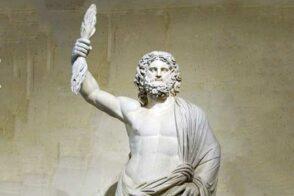
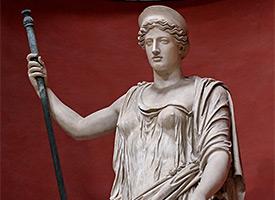
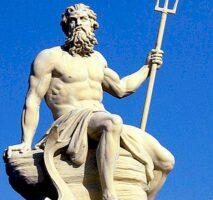
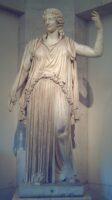
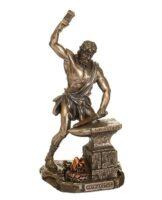
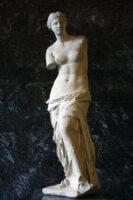
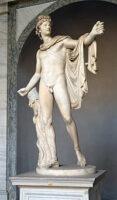
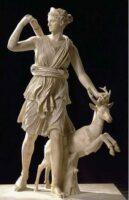
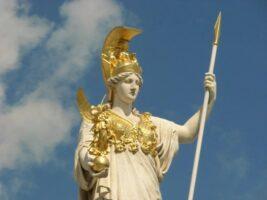
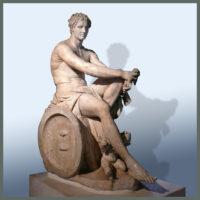

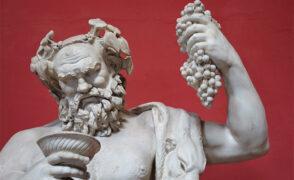
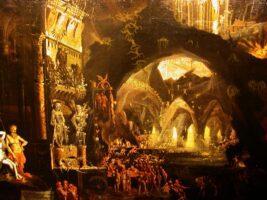
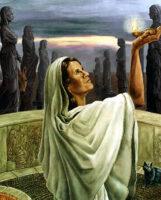
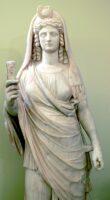
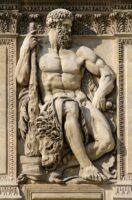
Leave a Reply